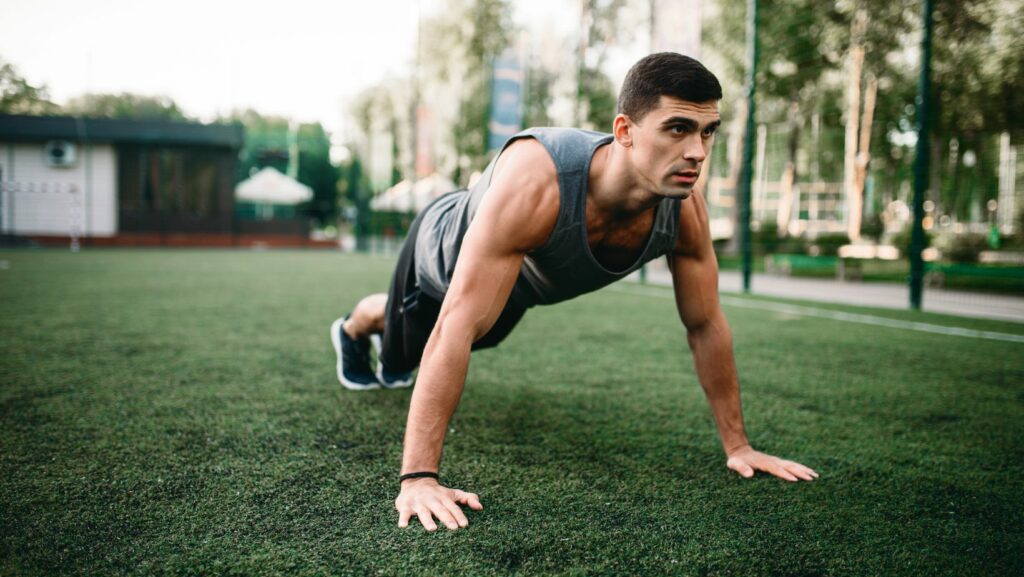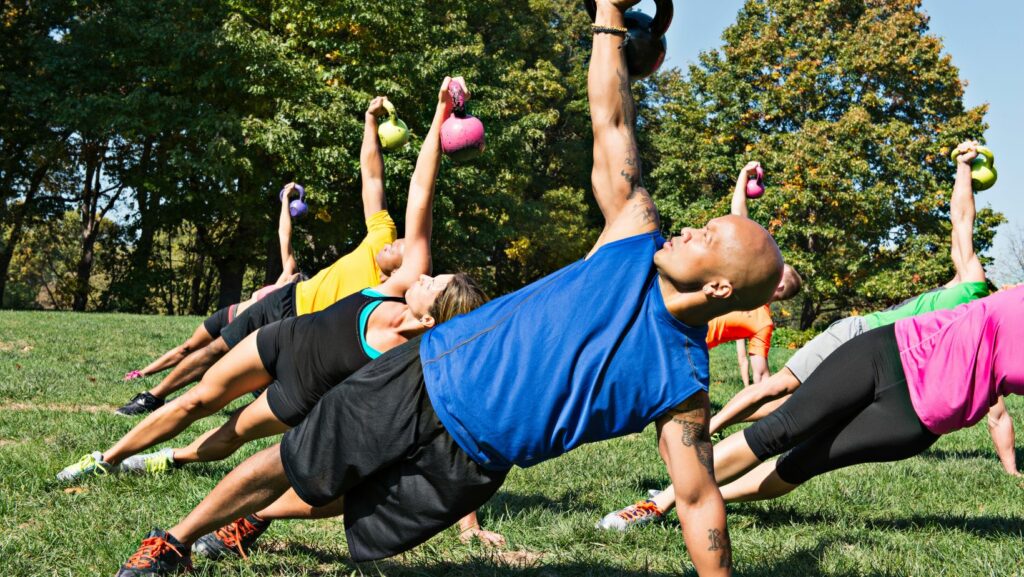
Complete Fitness
- Holistic Approach: Complete fitness is not just about physical exercise; it integrates physical, mental, and emotional well-being for overall health.
- Nutrition Matters: A balanced diet rich in whole foods, including fruits, vegetables, lean proteins, and healthy fats, is essential for supporting a strong body and mind.
- Diverse Exercise Regimens: Incorporating various forms of exercise—cardio, strength training, and flexibility activities—enhances physical resilience and mental clarity.
- Lifestyle Balance: Achieving complete fitness involves prioritizing quality sleep, mindfulness practices, and social connections to foster holistic well-being.
- Dispelling Myths: Complete fitness is often misunderstood; it requires a balance of nutrition, exercise, and emotional health rather than focusing on one aspect only.
- Accessibility of Fitness: Overcoming misconceptions about time and resources can lead to effective incorporation of complete fitness into any lifestyle through practical adjustments.
In a world where health trends come and go, the concept of complete fitness stands out as a holistic approach to well-being. It encompasses not just physical strength but also mental clarity and emotional resilience. Achieving complete fitness means integrating various elements such as nutrition, exercise, and mindfulness into daily routines.
Many people focus solely on workouts or diets, often neglecting the interconnectedness of body and mind. Complete fitness emphasizes balance, encouraging individuals to cultivate a lifestyle that supports all aspects of health. By understanding this comprehensive approach, one can unlock the potential for lasting wellness and vitality.
Understanding Complete Fitness
Complete fitness encompasses a comprehensive approach to overall well-being, merging physical, mental, and emotional health. It promotes a balanced lifestyle, integrating various elements that contribute to an individual’s vitality.
Definition of Complete Fitness
Complete fitness refers to a state of holistic wellness that includes physical strength, mental clarity, and emotional resilience. It emphasizes the importance of nurturing each aspect of health to foster a fulfilling and active life. The goal of complete fitness is not just the absence of illness but the presence of optimal health that enhances quality of life.
- Physical Health: Physical health involves regular exercise, flexibility, strength training, and cardiovascular fitness. Engaging in diverse workouts supports muscle development, enhances endurance, and improves overall functionality.
- Nutrition: Nutrition plays a crucial role in complete fitness. A balanced diet rich in whole foods like fruits, vegetables, lean proteins, and healthy fats fuels the body, supports immune function, and promotes overall health.
- Mental Clarity: Mental clarity is vital for decision-making and emotional stability. Practices like meditation, mindfulness, and cognitive exercises improve focus, reduce stress, and enhance cognitive function.
- Emotional Resilience: Emotional resilience enables individuals to cope with life’s challenges. Techniques such as journaling, therapy, and building strong social connections reinforce emotional well-being and promote a positive mindset.
- Lifestyle Balance: Achieving lifestyle balance involves incorporating rest, leisure, and social activities into daily routines. Prioritizing downtime and hobbies creates a well-rounded life that nurtures mental and emotional health.
Importance of Complete Fitness

Complete fitness significantly contributes to overall wellness, impacting both physical and mental health positively. Embracing a holistic approach to fitness enhances quality of life and fosters resilience.
Benefits to Physical Health
Complete fitness enhances physical health through various avenues, including:
- Increased Strength: Regular exercise builds muscle strength, improving daily task performance.
- Better Cardiovascular Health: Engaging in aerobic activities promotes heart health and reduces the risk of heart disease.
- Weight Management: A balanced diet combined with consistent physical activity aids in maintaining a healthy weight.
- Enhanced Flexibility: Activities like yoga and stretching improve flexibility, reducing injury risks.
- Improved Immunity: Regular physical activity strengthens the immune system, aiding in disease prevention.
Benefits to Mental Health
Complete fitness provides essential advantages for mental health, including:
- Stress Reduction: Physical activity releases endorphins, significantly lowering stress levels.
- Enhanced Mood: Regular exercise contributes to higher serotonin levels, promoting feelings of happiness.
- Improved Focus: Practices like meditation improve concentration and cognitive function.
- Increased Resilience: Emotional resilience develops through a healthy lifestyle, enabling better coping strategies during challenges.
- Social Connections: Engaging in group activities fosters relationships, enhancing emotional support and belonging.
Incorporating complete fitness into daily life cultivates a balanced approach to health, optimizing both physical and mental well-being.
Achieving Complete Fitness

Achieving complete fitness requires a multifaceted approach, incorporating nutrition, exercise, and lifestyle modifications. Each component plays a vital role in promoting overall well-being.
Nutrition and Diet
Nutrition forms the foundation of complete fitness. A balanced diet includes a variety of whole foods such as:
- Fruits and Vegetables: Provides essential vitamins, minerals, and antioxidants.
- Lean Proteins: Supports muscle repair and growth; sources include chicken, fish, beans, and legumes.
- Whole Grains: Offers energy and fiber, aiding in digestion; options include brown rice, quinoa, and whole-wheat bread.
- Healthy Fats: Supports brain health; sources include avocados, nuts, and olive oil.
Monitoring portion sizes and hydration significantly enhances dietary benefits. Additionally, reducing processed foods and added sugars fosters better mental sharpness and emotional well-being.
Exercise Regimens
Regular exercise constitutes a key pillar of complete fitness. Effective regimens include:
- Cardiovascular Activity: Engage in at least 150 minutes of moderate aerobic activity weekly, such as brisk walking, cycling, or swimming.
- Strength Training: Incorporate muscle-strengthening exercises at least two days per week, targeting all major muscle groups with weights or bodyweight resistance.
- Flexibility and Balance: Include exercises like yoga or Pilates; practice at least two to three times per week to enhance flexibility, posture, and stability.
Establishing a consistent exercise routine fosters physical resilience and mental clarity, allowing for a comprehensive approach to fitness.
Lifestyle Modifications
Lifestyle modifications support the pursuit of complete fitness by promoting holistic well-being. Focus on:
- Quality Sleep: Aim for seven to nine hours of restful sleep nightly to enhance recovery and mental function.
- Mindfulness Practices: Incorporate meditation, deep-breathing exercises, or journaling to improve emotional resilience and reduce stress.
- Social Connections: Engage in regular interactions with family and friends to foster strong support networks, which contribute to mental health and overall quality of life.
These lifestyle changes create a balanced environment conducive to achieving complete fitness.
Common Misconceptions About Complete Fitness

Many individuals hold misconceptions about complete fitness, often leading to confusion about its true nature. Addressing these myths is essential for fostering a clearer understanding of holistic wellness.
Myths vs. Facts
- Myth: Complete fitness only involves physical exercise.
Fact: Complete fitness encompasses not only physical strength but also mental and emotional health. Activities such as meditation and social engagement play vital roles in achieving overall wellness. - Myth: A perfect diet guarantees complete fitness.
Fact: While nutrition is critical, complete fitness demands a balance of diet, exercise, and mental well-being. One aspect alone cannot ensure holistic health. - Myth: Complete fitness requires long hours at the gym.
Fact: Effective fitness can be achieved with shorter, focused workouts that incorporate variety, including cardiovascular activities, strength training, and flexibility exercises. - Myth: Mindfulness and emotional health don’t influence physical fitness.
Fact: Mental clarity and emotional resilience significantly affect physical performance and resilience. Stress management techniques contribute to better health outcomes.
- Access to Resources: Many perceive a lack of access to fitness resources as a barrier. Utilizing community programs, online workouts, and home-based routines can provide practical solutions.
- Time Constraints: Individuals often cite busy schedules as a hindrance. Integrating fitness into daily activities, such as walking during breaks or practicing short mindfulness sessions, showcases that wellness can fit into any lifestyle.
- Lack of Knowledge: Uncertainty about where to start can prevent progress. Seeking expert guidance through workshops, classes, or credible online content equips individuals with the knowledge to pursue complete fitness effectively.
- Fear of Judgment: Concern about others’ perceptions can hinder participation in fitness activities. Focusing on personal goals and surrounding oneself with supportive communities fosters a more positive approach to wellness.
Healthier Happier Life
Complete fitness is a transformative journey that goes beyond traditional notions of health. By embracing a holistic approach individuals can enhance their quality of life and achieve true well-being. Prioritizing nutrition exercise and mental health creates a balanced lifestyle that fosters resilience and vitality.
It’s essential to recognize that complete fitness is not a destination but an ongoing process. With the right mindset and commitment anyone can overcome barriers and integrate these principles into daily life. Whether through community support or personal dedication the path to complete fitness is accessible and rewarding.
By nurturing both body and mind individuals open the door to a healthier happier life.



